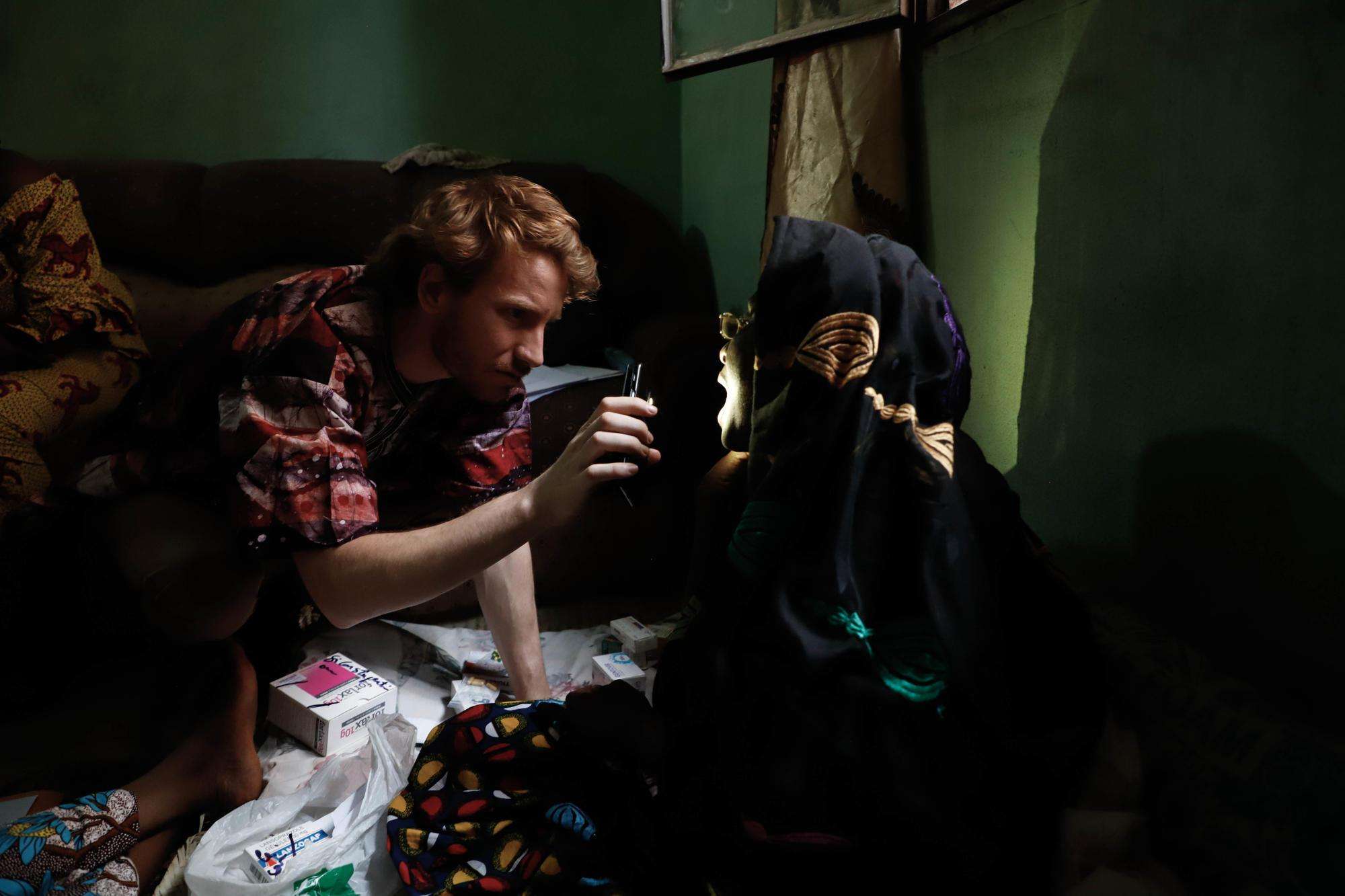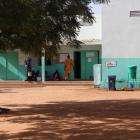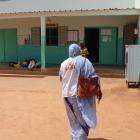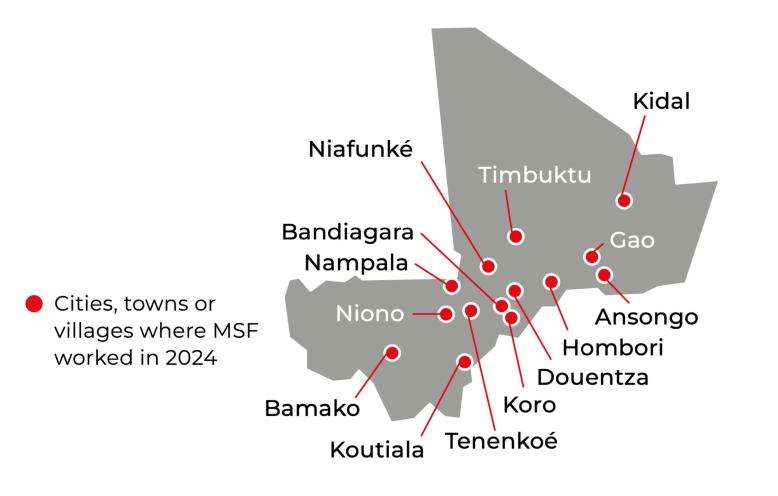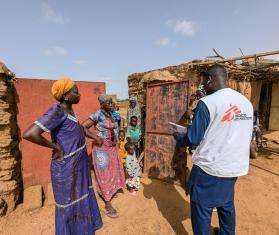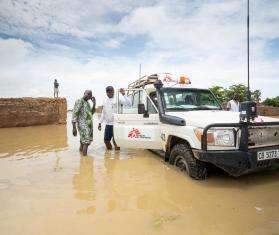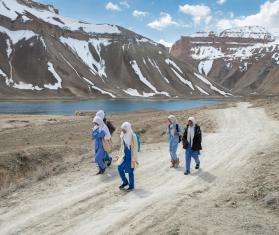In October, heavy rains caused flooding in several regions of the country, including the capital, Bamako. As well as causing widespread destruction and displacing thousands of people, the floods encouraged the proliferation of mosquitoes, which contributed to a significant increase in malaria cases. MSF collaborated with the Malian authorities to respond to the immense humanitarian needs of people displaced by the floods and conflict by providing medical care and essential household items, supplying clean water, and building latrines.
Other support included training health care staff and rehabilitating health facilities in Niono, Niafunke, Ténenkou, and Douentza health districts. We also maintained our community-based health services for people living in remote areas who struggle to obtain medical care.
Despite robberies, violence, physical attacks, and restrictions on access, our teams made every effort to maintain activities across the country, especially since reduced international funding and the withdrawal of several aid organizations have further limited people's access to essential services and support.
In Bamako, we handed over the screening activities at our oncology project to the Ministry of Health and its partners and refocused our support on improving access to care for breast and cervical cancer.
